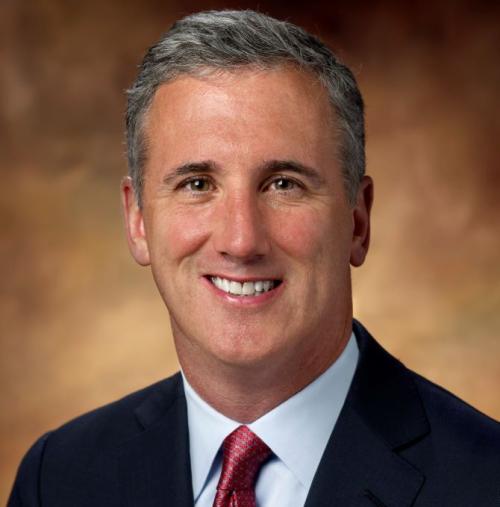Ken Feinberg, special master for executive compensation at the US Department of the Treasury, talks to us about his role and what rules the Treasury will look to enforce
On May 6 Kirkland & Ellis brought together a select list of general counsel and CEOs for a private dinner at its impressive New York City offices. The timing could not have been better – the markets had dropped 1,000 points in intra-day trading (and recovered somewhat to close at down around 350 points) – but the main draw was Ken Feinberg, special master for executive compensation at the US Department of the Treasury. The conversation was both lively and informative. After dinner, Corporate Secretary took the opportunity to question the special master on his role in corporate reform and compensation.
How would you define the scope of your role?
Firstly, corporate governance – the whole debate about the power of shareholders, the role of independent compensation committees, the role of the board – none of those issues are on my watch. They are addressed by the administration, by other initiatives like regulatory reform, corporate governance reform and some of what Congressman Frank and others are doing on the Hill. That is where those issues get addressed.
I have a very limited statutory mandate now, down to five firms, and my role is just to determine compensation packages for the top 25 corporate officials at each of those companies. I have some other statutory roles to play at the broader collection of Troubled Asset Relief Program (TARP) companies, but the determination of compensation in individual cases is limited.
Is it realistic for you to cap compensation at these or any other companies, given the broad range of highly creative ways companies can pay their executives? Cash payment is one thing, but can you control everything else?
Yes. As for the people who are subject to my jurisdiction, the total compensation packages are to be determined by the office of the special master. That does not just mean cash salaries. It also means stock and perks; it means severance packages and retirement benefits.
From a technical standpoint, how do you evaluate how much a certain package may be worth – especially if the package includes options, which are notoriously hard to value?
The simple answer is that options are prohibited. There should be no guaranteed compensation other than a modest cash-based salary of under $500,000 annually. The rest of the compensation should be in the form of stock, which cannot be redeemed except over a two, three or four-year period. There should be no perks beyond $25,000 without approval from me, no golden parachutes, no severance packages that are backloaded and are a subterfuge to get around lower compensation. I think the statute and the regulations make it very clear that we are talking about total compensation, not just cash and annual stock.
You recently sent letters to all 419 companies involved in TARP requesting information about any employee who received more than $500,000 in 2008/2009. Are there any concerns directors and/or members of compensation committees should have in the event that you determine the pay packages they approved are excessive or ‘counter to the public interest’?
The statute prohibits any attempt by me – other than through the use of the public bully pulpit – to force these companies to do anything. I have no enforcement authority to file lawsuits. I certainly have no authority to subpoena records or anything like that.
I think this is more of an advisory effort. I do not feel it exposes boards to litigation arising out of my specific lookback review, and we will see whether there is in fact any need for me to claw back salary.
Should companies really be taking the public interest into account in compensation decisions? Isn’t the directors’ responsibility, and the management’s responsibility, to the entity of the corporation?
Why should that responsibility to the corporation be against the public interest? They should be aligned.
If you read the fiduciary responsibility of the board, nowhere does it imply that board members should take decisions in the interests of the public.
I must say I am not in a position to argue the pros or cons of the responsibility of boards, other than in the narrow context of executive compensation at the companies under my remit.
Like it or not, what you are doing at the handful of companies under your jurisdiction is being projected onto a much broader set of companies. The media, the public and several hundred congressmen are evaluating other pay practices by your standards. With that in mind, what should compensation committee members in general be doing?
What I would hope they will start doing is looking at the prescriptions that the Treasury has promulgated under its mandatory jurisdiction and deciding whether – in the context of their own companies – they should be adopting some of those prescriptions, taking into account the situation at their company and its particular culture and history of compensation.
It is important to remember that one size does not fit all, but I would hope that individual boards would be voluntarily trying to see whether the prescriptions and rules fit for them.
Part of your remit is to measure pay for performance. How do you measure performance?
Under our rules performance is measured by the company itself, not by us. We have the right and the duty to monitor those criteria that are deemed to be relevant to objective performance, but we are not so foolish as to think we can determine what the objective performance criteria should be for every company that is out there. We ask the companies to do it and keep an eye on them to ensure they are measuring up to their own standards.
Have you encountered any situations where some of the performance criteria submitted to you were egregious, or just plain crazy?
No, we have not. We work closely with the companies in that regard.
Do you have any feelings on what the right mix of compensation should be?
Yes. We think the right mix is roughly 45 percent cash and 55 percent stock. For the people I deal with, that stock cannot be restricted or conditioned (or in the form of options), although one third of the total package can be subject to bonus restrictions. The base cash salary cannot be in any way conditioned.
You mentioned earlier the use of the bully pulpit for aiding you in achieving compliance at companies beyond your direct legal jurisdiction. With this new project, how much do you think you’re going to need to do this?
It is still too early to tell. We are not sure if we are doing anything right now, but it does remain an option.
What’s next for Ken Feinberg?
Ken Feinberg will be long gone from the Treasury before all of these five firms can repay their debt. I will probably be long gone, period. But the law is clear that, as long as they owe taxpayer money, their top people will have their pay determined by the Treasury.








